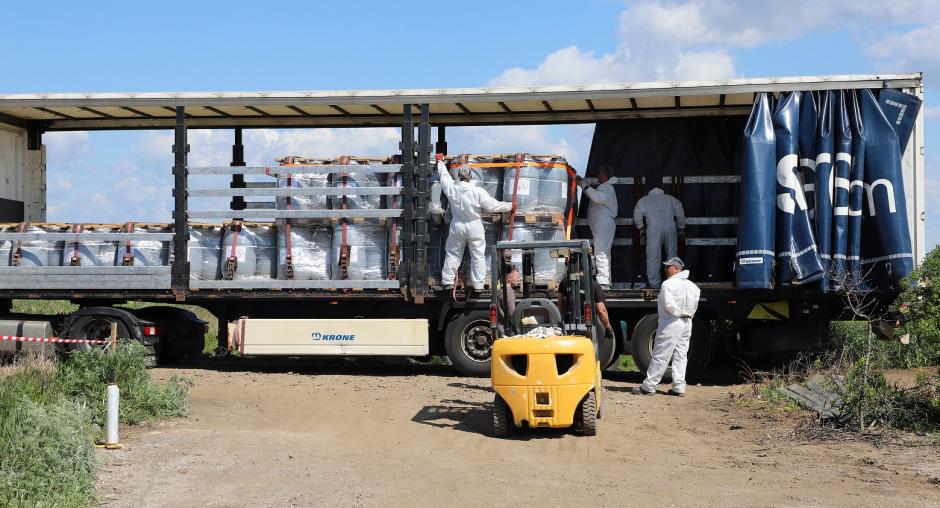OSCE Mission to Moldova removes obsolete pesticides from Transdniestria

Today, twenty tons of obsolete Soviet-era pesticides were safely transported from Transdniestria to be disposed of in Germany. This is first of three truckloads to be removed during the final phase of a multi-year project, with the financial and technical support of the OSCE Mission to Moldova.
“Not only do these dangerous chemicals present a threat to the environment and people’s health, they also put a burden on the local authorities responsible for the storage sites,” said Claus Neukirch, Head of the OSCE Mission to Moldova.
He stressed that the project helps protect the environment and people’s health, and contributes to building confidence, dialogue and co-operation between both banks of the Dniester/Nistru River. Some 60 tons of hazardous material will be transported from the left bank of the Dniester/Nistru River in 2022.
Following a request from the Transdniestrian authorities, the OSCE developed the project to facilitate the disposal of some 500 tons of obsolete pesticides. In October 2019, the OSCE Mission to Moldova and the Moldovan Ministry of Agriculture, Regional Development and Environment signed a Memorandum of Understanding to facilitate the safe international transit of obsolete pesticides stored in Transdniestria. More than 400 metric tons of hazardous materials have been repacked, removed and disposed over the course of 2019-2022.
According to expert assessments, several hundred of tons of pesticides and other hazardous chemicals remaining from the Soviet era still need to be removed from the region.
